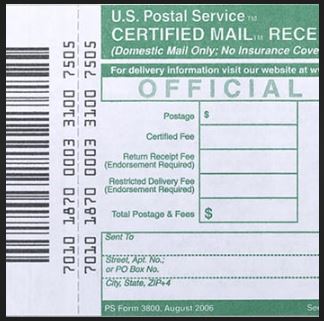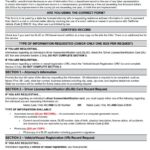Disclaimer: This blog post is for informational purposes only and does not constitute legal advice. Always consult with a qualified attorney for guidance related to your specific situation.
Navigating the legal waters can be complex, especially when it involves procedural requirements like serving documents. One such conundrum many legal professionals and laypeople alike face is the issue of serving certified mail or service of process to a P.O. Box address. Here, at LA Law Group, we aim to shed light on this topic and offer clarity for those in need.
Can You Serve Certified Mail to a P.O. Box?
First and foremost, it’s essential to understand the general principle: certified mail can be sent to any address, including a P.O. Box. The U.S. Postal Service treats certified mail sent to a P.O. Box much like any other mail sent to a box. The recipient receives a notification in their box, indicating that there’s certified mail awaiting pickup. They then present this notice at the counter to claim the mail.
Is Serving Certified Mail to a P.O. Box Legally Effective?
While you can send certified mail to a P.O. Box, whether or not it’s legally effective for your particular legal action depends on the nature of the service and jurisdictional requirements.
In many jurisdictions, for some legal actions, a P.O. Box may not suffice as a proper address for service of process, especially if personal service is required. It’s crucial to consult with local rules and regulations or speak with an attorney to ensure that you’re complying with the necessary requirements.
What About Service of Process to a P.O. Box?
Service of process is a vital step in initiating legal proceedings, ensuring that all parties are appropriately notified. If the rules mandate personal service or another specific type of service, a P.O. Box might not be acceptable. For instance, you cannot physically serve an individual (hand-deliver legal documents) at a P.O. Box.
However, there might be exceptions or alternative methods:
- Substituted Service: Depending on jurisdictional rules, if personal service attempts fail repeatedly, one might resort to substituted service, which could involve mailing the documents.
- Alternative Addresses: If you know the physical address of the individual, it’s always recommended to serve them there instead.
- Waiver of Service: If the opposing party agrees, they might accept service via mail to their P.O. Box, but always get this in writing.
The Takeaway
While it’s technically possible to send certified mail to a P.O. Box, and even to serve process in some cases, the legal efficacy of such service depends largely on local laws and the nature of the legal action. Failing to serve documents correctly can lead to delays, dismissal, or other adverse legal consequences.
If you’re unsure about the rules in your jurisdiction or have questions about serving certified mail or service of process, reach out to us at LA Law Group. We’re here to guide you through every step, ensuring that you navigate the legal system with confidence.
Disclaimer: This article is intended for informational purposes only and does not constitute legal advice. Always consult with an attorney before taking any legal actions.





